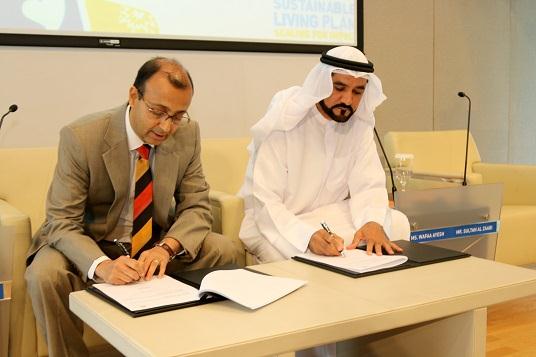
Unilever, one of the leading FMCG companies and owner of global brands such as Lipton, Lifebuoy and Dove, has announced the most recent results of its Unilever MENA Sustainable Living Plan during an event held at Dubai Chamber on May 25, 2015.
The ‘Unilever MENA Sustainable Living Plan’ calls for growing Unilever’s business, while reducing its environmental footprint and increasing its positive social impact. The plan has so far delivered growth for Unilever’s brands that have a social purpose and delivered savings via cost avoidance by reducing the environmental impact of its operations and enhancing the livelihoods of those within its value chain.
The third year update event drew attention to the need for concerted effort and long-term partnerships between public and private entities for achieving transformational change.
“The Unilever MENA Sustainable Living Plan is our way of driving business growth in a responsible manner that also creates socio-environmental change. We recognise that sustainable business success requires equitable behaviour that preserves the environment and empowers stakeholders. We are proud to have made considerable progress towards our 2020 goals of improving the health and hygiene of 50 million people, halving our environmental impact and improving the livelihoods of thousands in collaboration with our Sustainability Partners. We will continue reaching out to create powerful momentum resulting in meaningful action,” says Sanjiv Kakkar, Unilever’s executive vice president – MENA, Turkey, Russia, Ukraine and Belarus.
Since the introduction of the Plan in 2012, Unilever MENA’s Health and Hygiene programme has reached up to 19 million consumers. Sustainability initiatives have helped deepen brand equities, while driving increased consumer preference, thus generating an incremental turnover AED 28.65 million for Unilever’s Signal and Lifebuoy brands.